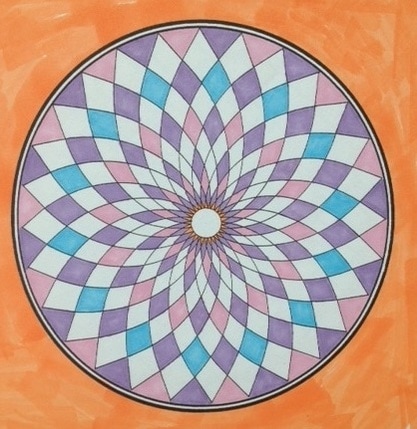|
6/4/2017 0 Comments Who do we practice for?If any merit is gained through this practice, may it be dedicated to the benefit of all sentient beings Lying in my hospital bed last year after 8 hours of surgery, drugged up on morphine and unable to sleep, I remember chanting some mantras. Not wanting to indulge the self-pity or flickers of blame in my mind, unable to drift off into unconsciousness, wanting something to do but without the energy to do anything, mantra filled the gap. And so I chanted. My throat was too dry to chant out loud, so I simply repeated the sound in my mind. Again and again. Om mani padme hung. I started doing this practice for me. I started it for the distress I was feeling, to help me find some constructive way of placing my attention at a difficult time. To stop me feeding old patterns that, in my weakened state, were nudging at me to indulge them. It would have been so easy to succumb, except that I know where that leads, having been so many, many times down that old dead end. So, in the darkness of that long night, the space around the mantra enabled me to tune into the madhouse energy of the hospital, to feel the suffering of those around me, those who were not conscious, perhaps fighting to survive. I realised that, if you took away the anaesthetics and sedatives and painkillers, almost every patient in there would be fighting, screaming or hallucinating. I felt the urgency of the medics and the deep compassion of the night staff tending to discomfort, thirst, blood, pus, bowels and bladders. Although the corner of my ward was relatively quiet, the regular calls for assistance from my 90 year old neighbour, who was unable to move herself in bed unassisted, or go to the toilet, or take a sip of water, showed me her distress was at least as strong as my own. As I chanted the mantra it swirled out of me and into this world of destruction and healing, and my own distress became just a tiny point at the centre of an enormous spiral. It is so easy to believe that we practice only for ourselves. Meditation is sold to us as a solution for our anxiety, restlessness, poor focus, lethargy… and of course that’s why I started meditating, too - for myself, to alleviate my own distress. And yet the true power of it is when our practice shows us just how tiny our distress and suffering are in the great expanse of all life. When it expands us beyond our perceived limits, when it spontaneously lights up the compassionate connection with others. This is why, in the Buddhist tradition, there is a moral context within which meditation is taught. It is not to tell us what to do and what not to do, not to bring in even more rules for our minds to get tangled up in, even more obligations to take pride in fulfilling or fail at achieving. It is to point towards that interconnectivity with all conscious life, to point towards the seeing that we are all in this together. At moments of crisis such as the one I had last year, acute distress can itself, if we allow it, cut through our habitual patterns. I am grateful for the teaching. But it is so easy to forget! I was getting caught up in my old, insular ways of seeing and thinking again last month, and my meditation teacher Lama Lena asked me: Do you dedicate your practice to all beings? I realised that I don’t, consistently, and in her wisdom she was pointing me back to that moment of insight, that through that dedication we are actually doing the greatest thing to alleviate our own suffering, by lifting the ‘me’ label away and allowing our own distress to swirl away into the pooling cycles of life in all its heart-breaking beauty. If any merit has been gained through this practice, may it be dedicated to the benefit of all sentient beings
0 Comments
|
AuthorThis blog shows the range of interests and activities that Kate delights in - and shares her news Archives
June 2022
|

 RSS Feed
RSS Feed
